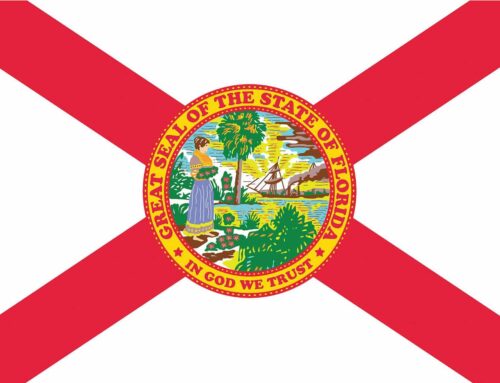This case is specific to Hawaii. But the legal concepts of reasonable suspicion and probable cause are relevant in cases all over the United States. The case of Hawaii state Representative Matthew LoPresti is informative because it shows how a successful defense can hinge on demonstrating a police officer’s lack of probable cause to justify an arrest in the first place.
LoPresti, who represents voters in the Ewa Beach district, west of Honolulu, Hawaii, was parked in a bike lane on Fort Weaver road one night in July of 2022. He had his hazard lights on, and a police officer pulled up to see if anyone needed assistance.
When the officer came up to LoPresti, he claims he told LoPresti to stay where he was. But the officer claims the car rolled forward.
After coming back to speak with LoPresti again, the officer noted that LoPresti’s eyes were “red, watery, and glassy,” and that he smelled alcohol on LoPresti’s breath.
The officer asked LoPresti to submit to a field sobriety test.
LoPresti refused, and asked the officer why the field sobriety test was relevant, and said he didn’t do anything wrong
LoPresti also asserted that the officer had no probable cause for a field sobriety test.
After LoPresti refused the field sobriety test several more times, he was placed under arrest and taken to the police station.
Three hours later, LoPresti was administered a blood test, which showed a blood alcohol level of 0.139, well above the legal limit in Hawaii of 0.08.
Earlier this week, a Hawaii judge dismissed the case.
No Probable Cause
Why? The judge sided with LoPresti’s lawyer’s argument: Nobody saw LoPresti driving the car. So while there may have been reasonable suspicion, there was no probable cause for an arrest. There was also no probable cause to obtain an involuntary blood test.
Normally (and state laws vary on this, so always check with your attorney for specifics), a refusal to take a field sobriety test may represent probable cause at least to obtain a warrant for a blood test.
But in this case, the judge held that LoPresti wasn’t declining the test to avoid a failure. Instead, LoPresti was challenging the legality of the test itself.
And correctly.
Furthermore, LoPresti’s lawyer also argued that there was no probable cause for the arrest at all, much less probable cause to get a blood test.
This wasn’t LoPresti’s first time. He had already been arrested and convicted in Hawaii on drunk driving charges in 2001.
What if LoPresti had taken the field sobriety test?
Well, then things might have worked out a lot differently.
Under Hawaii law, and in a lot of other states as well, police only need a reasonable suspicion, not probable cause, to ask you to submit to a field sobriety test.
It’s legal to refuse a field sobriety test in Hawaii, and in most other places, too. Not a chemical test, like a breathalyzer test, but a field sobriety test.
So simply refusing to undergo a field sobriety test isn’t evidence of anything, and does not constitute probable cause for anything.
But if LoPresti had taken the field sobriety test, and failed it, then that would potentially create probable cause for a chemical test, probable cause for arrest, and if the Honolulu Police Department was at all competent, probably a conviction.
Refusing the field sobriety test, rather than taking it and risking failure, short-circuited the whole process.
Because the Honolulu Police Department never witnessed LoPresti operating the vehicle, they couldn’t make anything stick. Because the arrest was improper without probable cause, then so was the blood test administered after the arrest. “Fruit of the poisoned tree,” and all that.
Plus, LoPresti was smart. He admitted to nothing. Though he was a politician, he didn’t make any public statements that prosecutors could use to incriminate him.
The only dumb thing he did was argue the point with the cop. It’s almost always better to identify yourself, and then invoke the 5th Amendment and shut the **** up.
The due process issues would still be there for his attorney to work on later.
Here’s some video of LoPresti’s stop and subsequent arrest.
Can You Refuse a Field Sobriety Test?
State laws vary. Always consult an attorney licensed in the state where your arrest took place. But in general, compliance with field sobriety tests are voluntary. Compliance with breathalyzer requests are not.
Once you refuse a field sobriety test, you’ll almost always be asked to do a breathalyzer test.
Refusal nearly always results in an arrest. In some areas, implied consent laws also mean an automatic license suspension for a year for refusing a breathalyzer.
Police will generally get a warrant to force you to give a blood sample, but that usually comes hours later. It’s possible your BAC may fall below the legal limit, then, making it much more difficult for the prosecutor to get a DUI conviction.
If the facts if this particular case showed that LoPresti’s refusal was based on fear of failing, it would not have gone well for him. But under the circumstances, LoPresti’s argument that there was no probable cause for any of it to happen in the first place had teeth.
Field sobriety tests are garbage. They are rarely administered correctly. They are insanely subjective: Different policies officers administer them differently. Passing or failing can hinge on trivial details, misheard or misunderstood instructions, language barriers, pre-existing balance and motor control problems, prescription medications, and a host of other issues.
False positives abound: It’s very easy for stone-cold sober drivers to fail these tests for a variety of reasons. It happens all the time. And people get their lives upended over these garbage tests all the time.
Take Action and Get SR22 Insurance In Place.
If you’re reading this because you were recently stopped for a DUI, you need to be aware of some things:
First, you not only have to beat the police and the DA in court, or get your legal charges dropped somehow. You also need to fight a separate administrative battle at the Department of Motor Vehicles in your state.
State laws vary. But once you get stopped for a DUI, the clock starts ticking at the DMV. You may have a deadline to submit an SR22 filing from your insurance company, verifying that you have the minimum level of liability insurance in place, so your license doesn’t get suspended.
In some states, including Florida and Virginia, you might have to submit an FR44, proving to the state that you actually have extra insurance in place.
That means you might need to buy extra insurance.
Chances are your car insurance rates will shortly go up. And your current car insurance company may even cancel your policy altogether.
Shop Around for SR22 Car Insurance.
So it’s time to shop around.
The standard risk car insurance market is very efficient. Pricing for similar policies don’t change very much between companies for good drivers. Once an SR22, drunk driving, or reckless driving record comes into play, pricing goes all over the map.
Different car insurance companies can price higher-risk drivers radically differently.
The best way to shop around is to ditch the captive agents who can only sell policies from a single company. These companies know you aren’t shopping around, and raising their prices accordingly.
Use an independent car insurance agent who specializes in the high risk market.
At Select Insurance Group, we’re built around serving the higher-risk driver. The SR 22 insurance customers. And the ones with a few dings on their records!
And unlike a lot of strip mall and mega-call-center insurance agents, we aren’t captive to any one insurance company.
Instead, we can get you quotes from many different car insurance companies available in your state… all from one convenient source, and all competing aggressively to earn your business.
Don’t wait until you get canceled. And don’t sit idly by while some captive insurance company jacks your rates up. Take control, and get these competitive car insurance quotes from insurance carriers that want to compete for you. Not from carriers who are looking to get rid of you.
Fill out this easy online form and we’ll get you competitive quotes from several top carriers in your state. And we can help guide you to the companies with the most favorable underwriting guidelines and pricing in your particular situation.
Would you rather just pick up the phone? Just call us at (855) 438-7353 and ask to speak with an agent!
Good luck with your case, and I’ll see you on the road!
Steve “Mr. Insurance” Ludwig
CEO, Select Insurance Group






